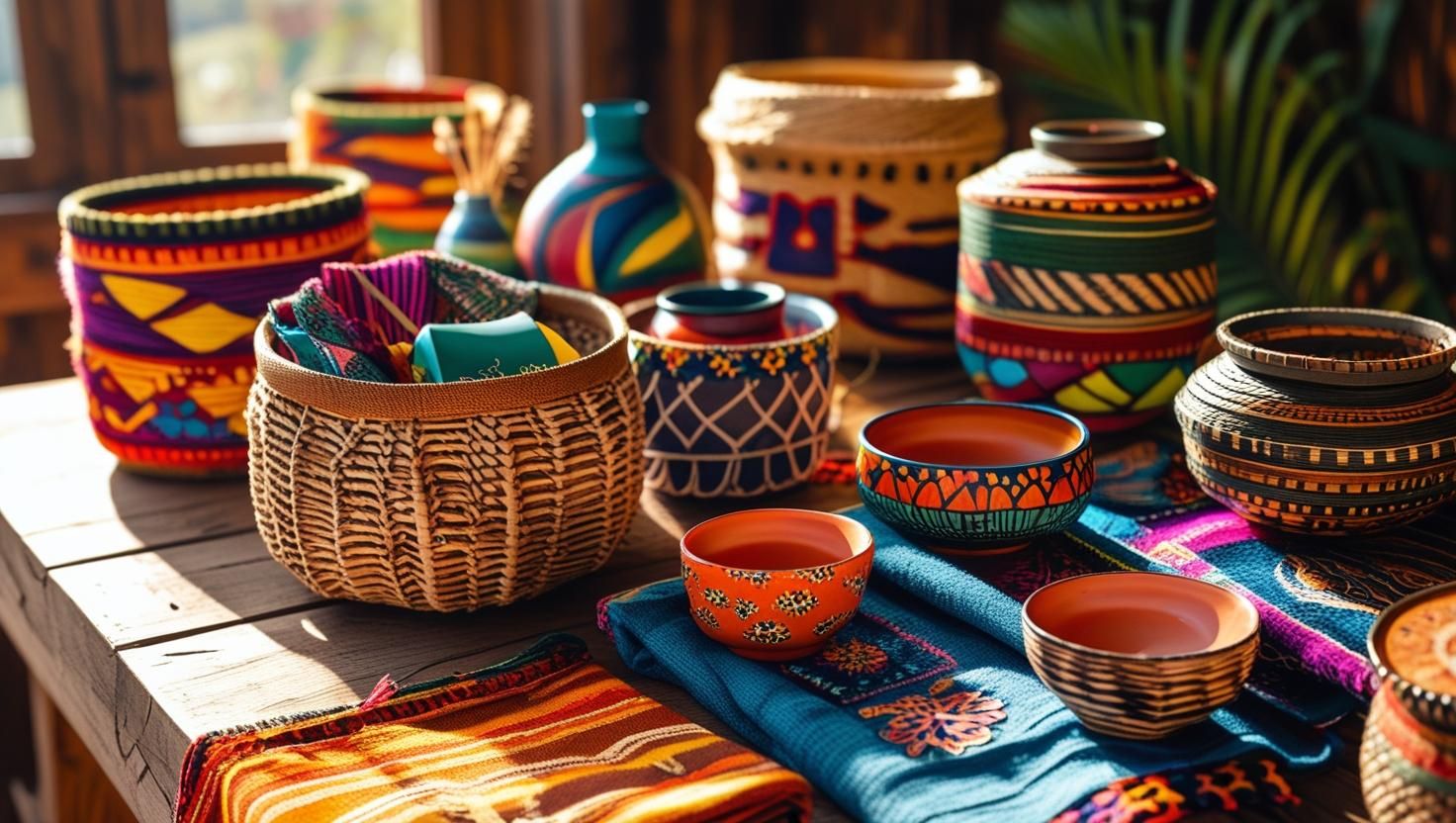Fairtrade: A Profitable Path for Independents
)
Have you ever wondered where your bestsellers truly originate?
Not just the delivery route, but the hands, the communities, the decisions behind each piece. For independent retailers in the furniture, homeware, and gift space, buying is more than logistics. It’s about meaning. It’s about impact. And now, more than ever, it’s also about opportunity.
 Fairtrade in Homeware, Gifts, and Furniture
Fairtrade in Homeware, Gifts, and Furniture
Fairtrade and ethical sourcing are no longer niche—they’re essential. While the movement is long established in food and fashion, it’s quietly gaining ground in homeware, gift, and furniture retail, bringing with it a compelling commercial and ethical story.
Today, Fairtrade-certified and ethically made products span a wide range of items, including hand-carved décor, artisanal ceramics, recycled glassware, natural textiles, and statement furniture pieces. And shoppers are responding.
A Sector on the Rise: The Stats
-
Over 9 in 10 UK shoppers (93%) recognise the Fairtrade mark, and over 80% trust it.
-
In 2023, Fairtrade retail sales in the UK reached £1.1 billion, with a notable increase in non-food categories, including home accessories and gifts.
-
A 2022 Fairtrade Foundation report found that 65% of shoppers aged 18–34 are more likely to buy from a retailer that stocks Fairtrade products.
-
52% of UK shoppers actively seek out products with positive social or environmental credentials, with furniture and homeware now seen as key areas for improvement.
Why This Matters for Independent Retailers
Broader Recognition = Instant Trust
Fairtrade is one of the most recognised and trusted ethical standards in the UK. Stocking homeware or furniture with the Fairtrade mark—or from producers aligned with Fairtrade principles—can instantly boost shopper confidence and encourage purchase.
Story-Rich Products Build Loyalty
The products in this category often come with compelling stories about the materials used, the communities they support, and the traditional craftsmanship they preserve. And stories sell. They foster emotional connection and turn casual browsers into brand advocates.
Healthy Margins, Less Competition
Unlike mass-produced goods, many ethically sourced home and furniture items are handmade in small batches. This means lower direct competition and the ability to sell at a premium. Retailers often report increased average transaction values when introducing ethically made ranges.
Relevance for Today’s Values-Driven Shopper
From sustainability and transparency to community impact, Fairtrade ticks many of the boxes that today’s consumers care about. And it isn’t just Gen Z—across generations, there’s a growing desire to buy “better, not more”.
A Closer Look at the Impact
-
Customers Connect With the Story
When shoppers understand the story behind a piece— who made it, how it was crafted, and why it matters—they often form a stronger connection. In a homeware or furniture setting, it’s no longer just about the look. A lamp, a side table, or a handwoven basket becomes something more personal. A talking point. A memory. That’s the kind of storytelling that sticks. -
The Right Products Lift Your Reputation
Ethically made items often carry a certain weight, not just in how they’re built, but in how they’re received. Shoppers tend to associate them with quality, care, and originality. And that association reflects on your shop. It says, 'This place chooses carefully.' This place has values. -
It Brings People Back
When customers see that you’re supporting craftspeople and conscious production, it gives them a reason to come back, not just for what you sell, but for how you choose to do business. That sense of alignment matters, especially to shoppers who are tired of throwaway culture and looking to buy with more intention. -
Access to a Growing Market
There is apparent demand. Whether it’s gifting, redecorating, or conscious consumption, shoppers are seeking retailers that curate with care. The Fairtrade home and gift category is growing, and independents are ideally placed to lead.
Five Ways to Start
-
Start Small, Curate Well: Select a tight edit of ethically sourced homeware or smaller furniture pieces that align with your aesthetic.
-
Share the Stories: Utilise POS, social media, or packaging to showcase the journey behind the product, from the maker to the market.
-
Think Seasonal and Gifting: Ethical gifting is a fast-growing segment—think spring and summer gardenware, festive textiles, or New Year “refresh” home edits.
-
Train Your Team; Make sure staff understand the value story. A well-informed conversation on the shop floor can seal the sale.
-
Connect to Purpose: Customers remember why they chose you, especially when they know their purchase supported fair pay, sustainable materials, or a women-led artisan group.
Style With Substance
Fairtrade is a movement reshaping how we shop for our homes. For independent retailers in the furniture, gift, and homeware sector, ethical sourcing isn’t just a nice-to-have. It’s a chance to differentiate your offer, increase average spend, and build customer loyalty—while supporting the people and stories behind the products.
Now that’s what we call a win-win.
Source
Fairtrade Annual Report and Financial Statements 2023 (Fairtrade Foundation)
